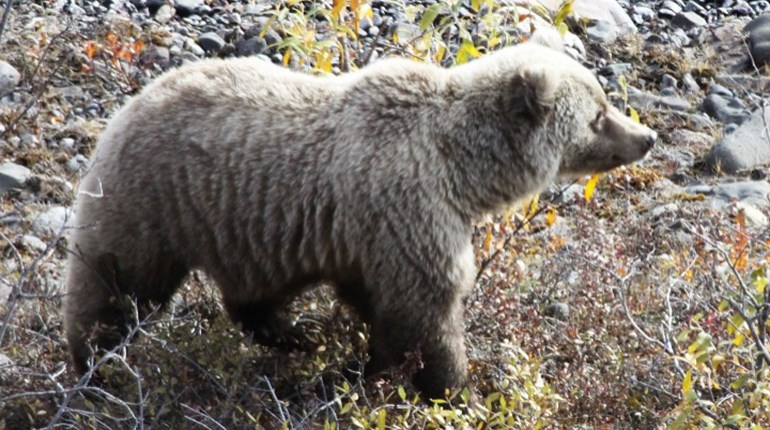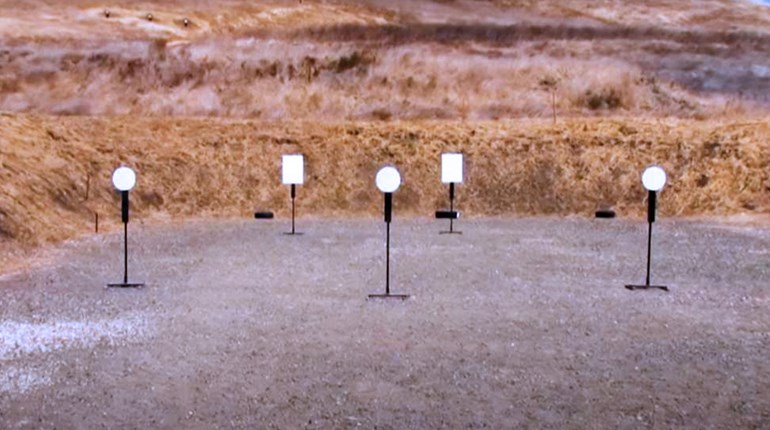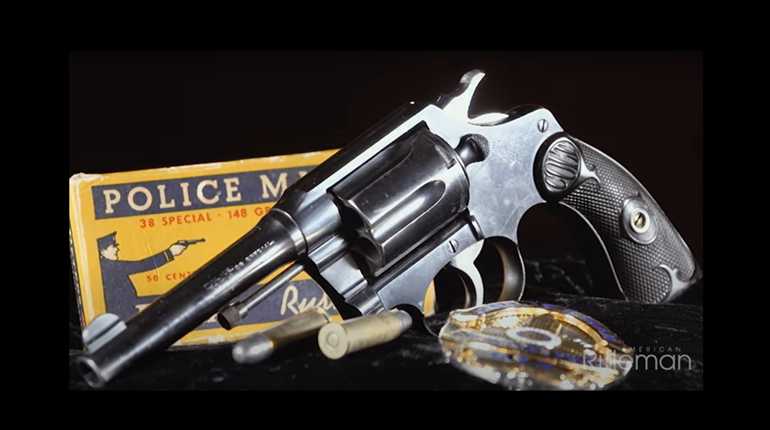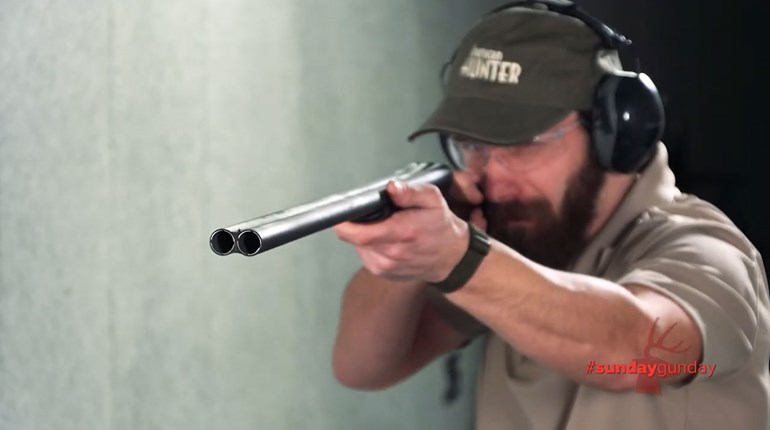
“This is redneck heaven. You get to run around the desert on ATVs and pickups, shoot guns, and get paid for it. Man, it’s the perfect job!”
That statement was made by a Personal Protective Specialist working in Afghanistan just days before he and his team (consisting of 19 Americans) and about a hundred Afghan police officers were ambushed by members of the Taliban in 2007. About a dozen of the Afghans were wounded in the attack and eight killed.
None of the American contractors died that day, but several were slightly wounded; one when a Taliban bullet ricocheted off the bolt of his rifle and nicked his neck. That contractor, Bill Black (not his real name), agreed to speak to NRA Family anonymously about the job of Personal Protective Specialist. His insight provides an insider’s look at an adventurous and extremely dangerous outdoor job few people know exists—and even fewer can qualify to do.
“Prerequisites for the job include at least four years of military service or eight years of law-enforcement experience, or some combination of both,” said Black. “I served in the U.S. Marine Corps, with combat tours in Desert Storm and Somalia, retiring as a staff NCO before applying for overseas security work.”
Not surprisingly, proficiency with firearms is an important requirement of the job. “The State Department dictates the firearms carried by personal-defense contractors,” said Black. “We were issued 5.56mm M-4 carbines, and either Beretta 9mm pistols or Glock Model 19, 9mm pistols. Those rifles and handguns were the same firearms the U. S. military was using at the time.”
No modifications were allowed to be made to the guns, and no personal firearms were allowed to be carried by the contractors, only what was issued. “Even something as simple as attaching a flashlight to a handgun was considered a modification and not permitted,” said Black.
Black worked for DynCorp, based in Virginia, spending two years in Afghanistan and nearly six years in Iraq. Companies such as DynCorp are hired by the U. S. State Department for various security tasks. During his time in Afghanistan, Black and his team were part of a drug eradication program, destroying poppy fields where opium was collected. The Taliban profited from the sale of the opium, which is why the American government wanted the fields of flowers eliminated.
“We would rollout with Afghanistan police units who would cut down the poppy plants,” said Black. “Our job was to observe, record gird coordinates, and photograph the drugs eradicated that day. The State Department then received our reports that same evening so the President could be briefed the next morning, if need be.”
In Iraq, Black’s assignment was protecting U.S. dignitaries while they were in-country on diplomatic duties. Some of his more well-known clients included Secretary of State, Condoleezza Rice; senators, John McCain and Lindsey Graham; and Vice-president, Joe Biden.
As for daily living conditions on the job, Black said they varied by season and assignment. During his winters in Afghanistan, he and his team lived in barracks-style facilities in cities, sometimes crowding three men and their gear into a 10-by-12-foot room. “But at other times we each had a room to ourselves,” he said.
During warmer weather Black’s team lived in tents in the desert, one-man South-African dome tents, for six to eight months at a time. “The tents were actually pretty comfortable,” he said.
He added that a large Operations tent was also part of the bivouac compound, containing a medical unit and state-of-the-art communications equipment. “I could talk to my wife in the states from a dedicated Skype satellite and our voices were clear as a bell even though we were thousands of miles apart and I was in the middle of a desert.”
Black said the weather in the Middle East was similar to America’s Midwest: cold winters, hot summers and cool springs and falls. He said the food while afield was good—at least as good as what could be prepared in a field kitchen.
“Meals were provided by a British catering unit,” he said, “hot chow mornings and evenings, with MREs (Meals Ready to Eat) in the field for lunch. We even had daily showers available from a shower truck filled with hot water.”
Most Personal Protective Specialists are drawn to the job by the money, earning anywhere from $150,000 to $250,000 per year. But for that handsome sum they are on-call 24/7, with no days off while in the field.
“When we were living in town we usually got one day off per week,” said Black. “But remember, although the money is good, you’re away from your family for months at a time and putting your life on the line each and every day.”
To make a point of the danger involved, Black related the story of a young police officer who quit his job in the States to become a personal-defense contractor overseas. “He never lived long enough to collect his first paycheck,” Black said. “He pulled up to an intersection in Afghanistan, driving the first vehicle in a four-vehicle convoy; the bad guys had buried a live howitzer shell in the road which they detonated remotely. His vehicle disintegrated and he was killed instantly.”
Black was attracted to the job by the money as well, but his gamble paid off. “I not only supported my wife and myself during those years, I also put our daughter through college and paid for her wedding. I was able to accomplish those financial goals because of being a personal-defense contractor, something I probably would not have been able to afford to the same extent working in the States.”
Another important aspect of the job that Black stressed is the ability to work as part of a team. “It’s difficult because you’re living and working with the same dozen or more guys every day,” he said. “They’re all alpha males from different backgrounds, all head-strong guys. It’s a tough environment, and if you don’t have a thick skin you’ll get eaten alive in a hurry. You have to be able to take a ribbing as well as give one. It’s all good-natured, but things do get tense at times. The biggest thing is knowing you can rely on any and all of your team members and they can rely on you.”
According to Black, about one in five guys washes out, unable to adapt to working and living closely with other team members for months at a time. “You may be good at your particular job stateside, but it is very different living in a third-world country,” he said. “Older guys tend to do better; they’re more experienced and their attitude is a bit more laid-back.”
It’s a male-dominated profession for sure, yet some women personal-defense contractors are hired for certain, specific assignments. If you think you may have what it takes—male or female—Black’s advice is to begin inquiring about jobs to see what’s currently available.
“The jobs are more scarce now than they were a decade or so ago, mainly because the U.S. military is no longer operating in certain areas of the world,” he said. “It also helps to have an overseas contact, someone who is already doing the type of work you’d like to do who can put in a good word for you to the boss and help get you hired.”
Black left the job at age 55. “It was a great job and I miss it every day,” he said. “Mainly I miss the camaraderie, the guys. You don’t want to let your team or your buddy down, so you know when it’s time to leave. Your body starts letting you know when it’s getting to be that time.”
Today, Black owns and operates a private training/shooting facility in the U.S. where he instructs police officers and other law-enforcement personnel. “It’s time for me to give back now,” he said. “I learned so much overseas that I can share with officers that will help them survive. It’s not a game they’re stepping into on the streets, it’s real life-and-death situations. I want them to be prepared...”
Note: If you’d like to read more about the job of a Personal Protective Specialist—including the firefight described at the beginning of this story—see the in-depth article titled The Taliban’s Opium War, which appeared in the July 9 & 16, 2007, issue of The New Yorker magazine.






































